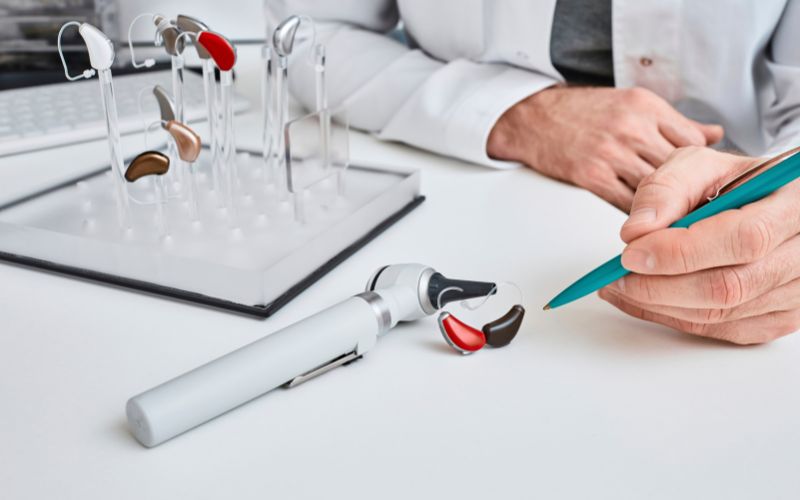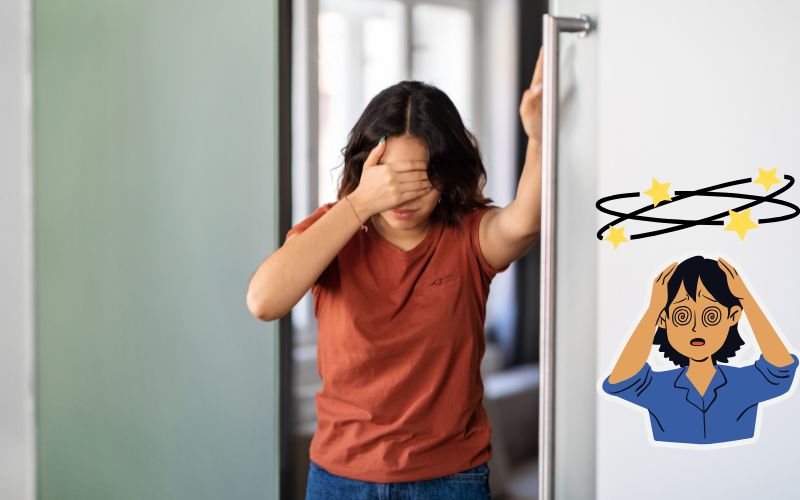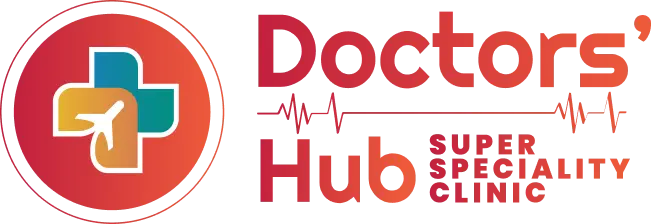Audiology & Speech therapy, Pathology & treatment in Gurugram, Delhi NCR
Make An Appointment

Audiology, Speech & Language Pathology Services at Doctor's Hub
The Audiology & Speech therapy & treatment specialist doctors at Doctors Hub Gurugram, Delhi NCR is specialised in assessing, diagnosing, and treating patients with hearing, speech, and swallowing disorders. We have comprehensive pathology and healthcare services for patients suffering from these issues, our specialists work with them to improve communication, auditory function, and swallowing issues.
We have our expertise in
- Audiology
- Balance Disorders
- Speech Disorders
- Dysphagia
Hearing Disorders (Audiology)
Audiologists account for treating hearing disorders ranging from mild to profound hearing loss, affecting your ability to communicate effortlessly. Our specialist doctor in Dwarka assess your conditions through various diagnostic tests.
Diagnostic Audiology Tests available in Delhi NCR:
- Pure-Tone Audiometry (PTA): Measures the softest sounds a person can hear at different frequencies.
- Speech Audiometry: Assesses speech recognition and word discrimination ability, helping us evaluate how well a person understands speech in different environments.
- Tympanometry: Tests the movement of the eardrum in response to changes in air pressure, which helps detect middle ear conditions like fluid, infection, or eustachian tube dysfunction.
- Otoacoustic Emissions (OAE): Assesses cochlear function, specifically the outer hair cells, to detect early signs of hearing loss.
- Auditory Brainstem Response (ABR): Measures the brain’s response to sound to assess the integrity of the auditory pathway from the ear to the brainstem.
Advanced Audiology tests in Delhi NCR
Auditory Steady-State Response (ASSR)
The ASSR test assess hearing thresholds in patients who don’t have conventional audiometry, like infants or patients with cognitive impairments. This evaluates brain's electrical response to auditory stimuli to determine hearing thresholds. It is highly useful for diagnosing severe hearing loss
Cortical Auditory Evoked Potentials (CAEP)
CAEP diagnoses higher-order auditory processing in the brain, particularly for those with central auditory processing disorders (CAPD) or those who cannot undergo behavioural testing. Electrodes are placed on the scalp to record brain responses to sound, providing data about how the auditory cortex processes auditory stimuli.
Aided Audiometry
Aided audiometry is used to test hearing aids or cochlear implants for treating auditory function. The test checks hearing thresholds while the patient wears their amplification devices.
Speech-in-Noise Test
This test evaluates how well a person can understand speech in the presence of background noise. The patient listens to speech presented in a noisy environment, simulating real-life conditions, and their ability is assessed. This test is particularly useful for diagnosing auditory processing disorders (APD).
Short Increment Sensitivity Index (SISI) Test
The SISI test evaluates sensitivity to small increases in sound. It is used for detecting non-organic (functional) hearing loss or malingering.
Short Increment Sensitivity Index (SISI) Test
The SISI test evaluates sensitivity to small increases in sound. It is used for detecting non-organic (functional) hearing loss or malingering.
Balance Disorders or Peripheral & Central Vestibular Disorders
Balance disorders are mostly related with the vestibular system(involving the ear), which is responsible for maintaining equilibrium. The vestibular system and the brain disorders lead to dizziness, vertigo, and impaired balance. We have ENT Doctors and balance disorder doctors specializes in treating peripheral and central vestibular disorders.

Types of Vestibular Disorders
Peripheral Vestibular Disorders
Peripheral vestibular disorders starts from inner ear and nearby structures that are responsible for detecting motion and maintaining balance. Common causes of these disorders are as follows:
- Benign Paroxysmal Positional Vertigo (BPPV): Caused by displaced calcium crystals in the inner ear.
- Meniere’s Disease: Characterized by episodic vertigo, hearing loss, and tinnitus, caused by fluid buildup in the inner ear.
- Vestibular Neuritis/Labyrinthitis: Inflammation of the vestibular nerve, due to viral infections, causing sudden vertigo and balance issues.
Central Vestibular Disorders
Central vestibular disorders are caused by problems in the brainstem or cerebellum used for processing balance information. These disorders are less common but more complex. Examples are:
- Vestibular Migraine: A migraine that affects balance, causing vertigo and dizziness along to the migraine symptoms.
- Multiple Sclerosis (MS): A neurological condition affect the brain’s ability to process vestibular information, leading to balance issues.
- Stroke: It impair the vestibular system, causing dizziness, imbalance, and coordination problems.
Central Vestibular Evoked Myogenic Potential (C-VEMP)
C-VEMP test diagnoses the saccule, a part of the inner ear for detecting vertical motion, and the vestibular pathway leading to the brainstem. The patient contract their neck muscles while a sound stimulus (usually a loud click) is presented. The response of the neck muscles is measured through surface electrodes placed on the sternocleidomastoid (SCM) muscle. C-VEMP evaluates the function of the central vestibular syste
Ocular Vestibular Evoked Myogenic Potential (O-VEMP)
O-VEMP assesses the function of the utricle, that detects horizontal motion and helps maintain balance. This test measures eye movements in response to sound stimuli. Electrodes are placed around the eyes, and the patient is exposed to a brief loud sound, which triggers an eye response.
Electrocochleography (E-COCHG)
E-COCHG is a specialized test used to measure electrical potentials generated in the inner ear (cochlea) in response to sound stimuli. This test is useful in assessing conditions like Meniere's disease or inner ear disorders.
Videonystagmography (VNG)
VNG evaluates eye movements (nystagmus) and detect vestibular dysfunction by assessing eyes response to different types of head movements and visual stimuli. The patient is asked to perform a series of tasks, including eye tracking and head movements, while wearing infrared goggles that track eye movements.
Caloric Testing
Caloric testing evaluates the function of the horizontal semicircular canals and the vestibular nerve by irrigating the ear with warm and cool water or air. The patient lies down, and warm or cool water is introduced into the ear canal. The difference in temperature causes fluid movement in the ear's semicircular canals, stimulating the nerve. The patient’s eye movements are then measured.
Posturography (Computerized Dynamic Posturography - CDP)
Posturography tests balance maintained by patients under different conditions, such as when visual input or proprioceptive feedback is altered. The patient stands on a force platform and is exposed to various sensory challenges.
Balance Disorders Diagnostic test lab in Delhi
We offer following tests to evaluate peripheral and central vestibular functions in patients:
Subjective Screening Tests
These tests provide an initial screening to assess the patient’s balance function and help determine whether further testing is needed. Common subjective tests include:
- Dizziness Handicap Inventory (DHI): A self-reported questionnaire like a discussion to check impact of dizziness on daily life and severity of symptoms.
- Vestibular Disorders Activities of Daily Living Scale (VADL): A test that evaluates vestibular dysfunction on daily activities, including work, social interactions, and household tasks.
Advanced Diagnostic Tests for Vestibular Function
Doctors’ Hub specialists use all pathology machinery and tools for advanced diagnosis of peripheral and central vestibular function more precisely:
Speech Disorders
Speech disorders are diagnosed when patients have difficulties with speech articulation, voice quality, fluency, and coordination. Doctors Hub treats range of speech disorders in both children and adults.
Following are the common disorders of speech:
- Articulation: Problems with producing speech sounds correctly (e.g., lisps, sound substitutions).
- Voice Disorders: Abnormalities in pitch, volume, or quality of the voice, caused by vocal cord issues.
- Fluency Problems: Stuttering and cluttering that affects the flow of speech.
- Apraxia of Speech: Brain has difficulty coordinating the muscle movements necessary for speech production.
- Dysarthria: Muscle weakness or poor coordination.

Diagnostic Services for Speech Disorders
- Speech-Language Evaluation: Identify speech or language impairments.
- Videofluoroscopy: X-ray procedure to evaluate the dynamics of speech production.
Speech Disorder Treatment Therapy in Delhi NCR
Speech Therapy
Exercises for articulation, voice, fluency, and motor speech issues.
Oral-Motor Therapy
For coordination and strength of oral muscles for patients with apraxia or dysarthria.
Swallowing Disorders (Dysphagia)
Dysphagia refers to difficulty in swallowing due to neurological conditions, aging, or structural abnormalities. Our doctors in Delhi and Gurgaon are experienced in treating patients having swallowing difficulties.
Types of Swallowing Disorders
- Oral Phase Dysphagia: Difficulty chewing or initiating the swallowing process.
- Pharyngeal Phase Dysphagia: Difficulty in moving food from the mouth to the throat and esophagus.
- Esophageal Phase Dysphagia: Difficulty moving food through the esophagus.
Diagnostic Tests
- Modified Barium Swallow Study (MBSS): X-ray to analyse swallowing function in real-time.
- Fiberoptic Endoscopic Evaluation of Swallowing (FEES): Uses an endoscope to visually examine the swallowing process and detect abnormalities.
Swallowing Difficulty Treatment
- Swallowing Therapy: Exercises to improve swallowing coordination and strengthen muscles involved in the process.
- Diet: Adjusting food consistency (e.g., pureed foods, thickened liquids) to make swallowing safer. Our dietician will help you with diet for swallowing issues,
- Postural Techniques: Teaching patients specific positions to aid swallowing.
Testimonials
Very good and supportive staff..
Doctor are good and excellent in their field must visit
Doctors are very helpful and friendly, staff are also so well behaved.
I had a great experience there 👌👌
Good Polyclinic in Dwarka. though new opened, staffs are very cooperative. Shown to ENT doctor only. Patients are still less. Doctors visit mostly appointment basis. All doctors are available but on appointment.
Consult Doctors Hub for best specialists in Delhi Now
We aim to help patients cure all problems related to hearing, balance, speech, and swallowing. Consult our expert doctors now









